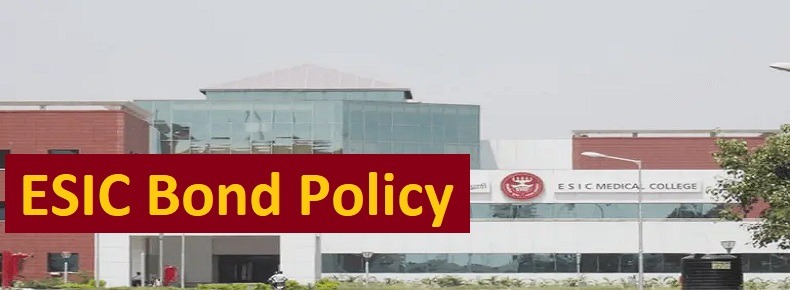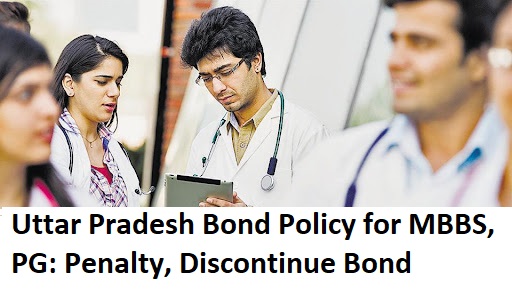ESIC Bond Policy: Penalty of Rs 10 Lakh for MD/MS, Rs 15 Lakh for DM Courses with 2 Years of Service Requirement
ESIC Bond Policy: Aspiring doctors applying for PG medical (MD/MS) or Super speciality (DM) courses at ESIC medical institutes nationwide must complete a mandatory 2-year service at ESIC institutes or government institutes under the ESI Scheme.
Although the bond duration remains consistent for MBBS graduates applying for MD, MS admissions and PG medical graduates applying for DM courses at ESIC institutions, the bond penalty differs at Rs 10 lakh and Rs 15 lakh respectively. The students have the option to cover part of the payment for services provided.
This effect was confirmed by a recent notification posted on the official website of the Karnataka Examination Authority (KEA) on November 25th, 2024.
As per the notice released on 28-7-2020, there was a modification in the Bond conditions for post-graduate (MD/MS) / super-specialty (DM) trainees of ESIC Medical Education Institutions.
The notification makes reference to:
Following approval by the Competent Authority, I am instructed to refer to the subject mentioned above and communicate the updated Bond conditions for post-graduate (MD/MS) / super-specialty (DM) trainees of ESIC Medical Education Institutions.
A) Post-graduate Courses (MD/MS)
| Parameter | Revised Conditions |
| Bond Duration | 2 years |
| Bond Amount | ₹10 Lakh |
| Phase-wise Payment in Lieu of Partial Default | |
| Less than 1 year of service | ₹10 Lakh |
| 1 year to < 2 years of service | ₹5 Lakh |
| Bank Guarantee | |
| 1st year MD/MS course | ₹5 Lakh |
| Beginning of 2nd year MD/MS | ₹5 Lakh |
| Beginning of 3rd year MD/MS | ₹5 Lakh |
B) Super-specialty Courses (DM)
| Parameter | Revised Conditions |
| Bond Duration | 2 years |
| Bond Amount | ₹15 Lakh |
| Phase-wise Payment in Lieu of Partial Default | |
| Less than 1 year of service | ₹15 Lakh |
| 1 year to < 2 years of service | ₹7.5 Lakh |
| Bank Guarantee | |
| Beginning of 2nd year DM Course | ₹7.5 Lakh |
| Beginning of 3rd year DM Course | ₹7.5 Lakh |
The advantage of decreasing both the Bond period and Bond amount will apply to current PG (MD/MS) & super-specialty trainees (DM), new PG (MD/MS/DM) graduates, and PG (MD/MS/DM) graduates already fulfilling a bond at ESIC.
If pass-outs who are already serving under a bond have worked for more than 2 years, they can be released from their bond obligations without having to pay ESIC for the remaining bond period.
New graduates (this year) must provide a Bank Guarantee for the full Bond amount (as updated) at the beginning if they choose to work for the Corporation. If they choose not to serve, they can pay a different Bond amount and be excused.
The current PG trainee (MD/MS/DM) must sign a new Bond with updated terms and provide a Bank Guarantee, if necessary, within three months of receiving these instructions. The notice stated that post-graduate trainees must submit a revised Bond with Bank Guarantee within 3 months, or else their original Bond conditions will still apply.
The Corporation will keep the student/trainee’s original documents until the Bank Guarantee is submitted. Updated Bond conditions would not affect situations in which cases have been concluded, meaning individuals have been released after paying the Bond amount.”



























